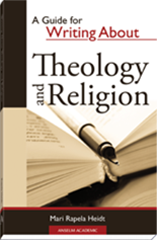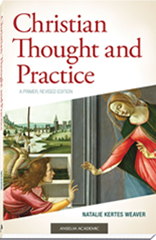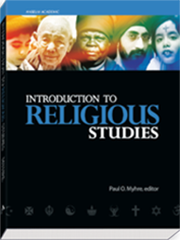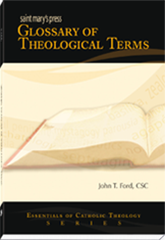A Guide for Writing about Theology and Religion
About This Book
Overview
Studying religion and theology opens up the world for undergraduates, and can serve as a gateway to other disciplines such as history, art, philosophy, anthropology, and sociology, making for a truly diverse and interesting classroom experience. Writing for these classes, however, can be especially challenging because exposure to this area of the academy is often new and the level of religion literacy low. As with any scholarly discipline, writing is an integral part of the learning process, one that allows students to engage with the subject matter in an organized, sustained, and independent manner. Developing the skills to write respectfully and well about all faiths, then, is crucial not simply to getting a better grade but to enabling deeper learning.
In A Guide for Writing about Theology and Religion, Mari Rapela Heidt coaches students on how to write a strong paper and on those things that one must be particularly mindful of when writing on religion: how to correctly cite texts from various religious traditions, including the Bible and the Qur’an; how to be inclusive in language; and how to properly refer to people and rituals. Additional chapters review the basics necessary for all good scholarly writing: how to cite sources and how to avoid common grammar, punctuation, and usage errors. The appendices provide additional helpful resources, including a useful paper-writing checklist for students. Particularly important tips and warnings are marked throughout the book with flag icons, making the guide a friendly, easy resource to consult again and again.
Even the best students can improve their writing skills to become better thinkers and more effective communicators. A Guide for Writing about Theology and Religion gives them the means.
Details
| Weight | 0.2 lbs |
|---|---|
| Dimensions | 5.375 × 1.5 × 8.25 in |
| Format | Softcover |
| Print ISBN | 978-1-59982-003-3 |
| Pages | 128 |
| Item # | 7043 |
|---|
Customer Reviews
“This guide should be required reading for every student in introductory religion and theology courses at the college level. Drawing from significant experience teaching such courses, Rapela Heidt provides helpful and clearly written advice on how to avoid the most common errors of basic writing, punctuation, and citation, as well as step-by-step directions for tackling the research paper. More important, she provides a unique and much-needed resource by walking students through the basics of the Abrahamic faiths and other world religions. Professors who assign this guide will undoubtedly find the papers they grade more gratifying to read.”
Marquette University
“Mari Rapela Heidt has produced a much-needed and welcome resource for undergraduate theology majors and minors whose professors require them to follow the writing style presented in the Chicago Manual of Style. I would highly recommend this book to my theology students.”
Mount Mary College
Table of Contents
PREFACE
To Students
To Professors
CHAPTER 1
WRITING ABOUT THEOLOGY AND RELIGION
Overview of Formal Writing
The Research Paper
Special Topics
CHAPTER 2
WRITING ABOUT RELIGIONS:
THE ABRAHAMIC TRADITIONS
The Deity in the Abrahamic Traditions
People
Judaism
Christianity
Islam
Texts of the Abrahamic Traditions
Religious Services and Rites
Special Questions Related to the Abrahamic Traditions
CHAPTER 3
WRITING ABOUT RELIGIONS: BEYOND
THE ABRAHAMIC TRADITIONS
Deities
People
Texts
Religious Services and Rites
Religious Concepts
Heaven in Chinese Traditions
Hindu Castes
CHAPTER 4
CITING SOURCES
When to Cite
Systems for Citing Sources
CHAPTER 5
A BRIEF REVIEW
OF ENGLISH GRAMMAR
Basic Grammar
Usage
CHAPTER 6
THE BASICS OF PUNCTUATION
APPENDIX A
PAPER-WRITING CHECKLIST
AND FORMATTING TIPS
Paper-Writing Checklist
Formatting Tips
APPENDIX B
HELPFUL RESOURCES
INDEX
Professional Reviews
“Reminiscent of the size and scope of Strunk and White’s The Elements of Style, Mari Rapela Heidt’s A Guide for Writing about Theology and Religion is a slim style manual addressing the particulars of writing about topics in theology and religious studies. The book’s primary goal is to serve as a guide for undergraduates to improve their writing in religion and theology courses. The author holds a PhD in theological ethics from Marquette University and teaches in the Religious Studies Department at the University of Dayton. Drawing from her experience teaching undergraduates, Heidt sets out to distill the fundamentals of good writing she sees as lacking in many of her students’ assignments. At a little over a hundred pages, the book is just what the author describes in the preface: a crash course on punctuation, citation, and word usage (10).”







